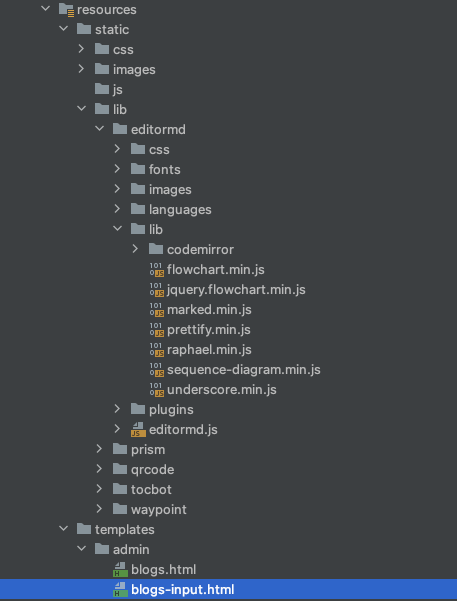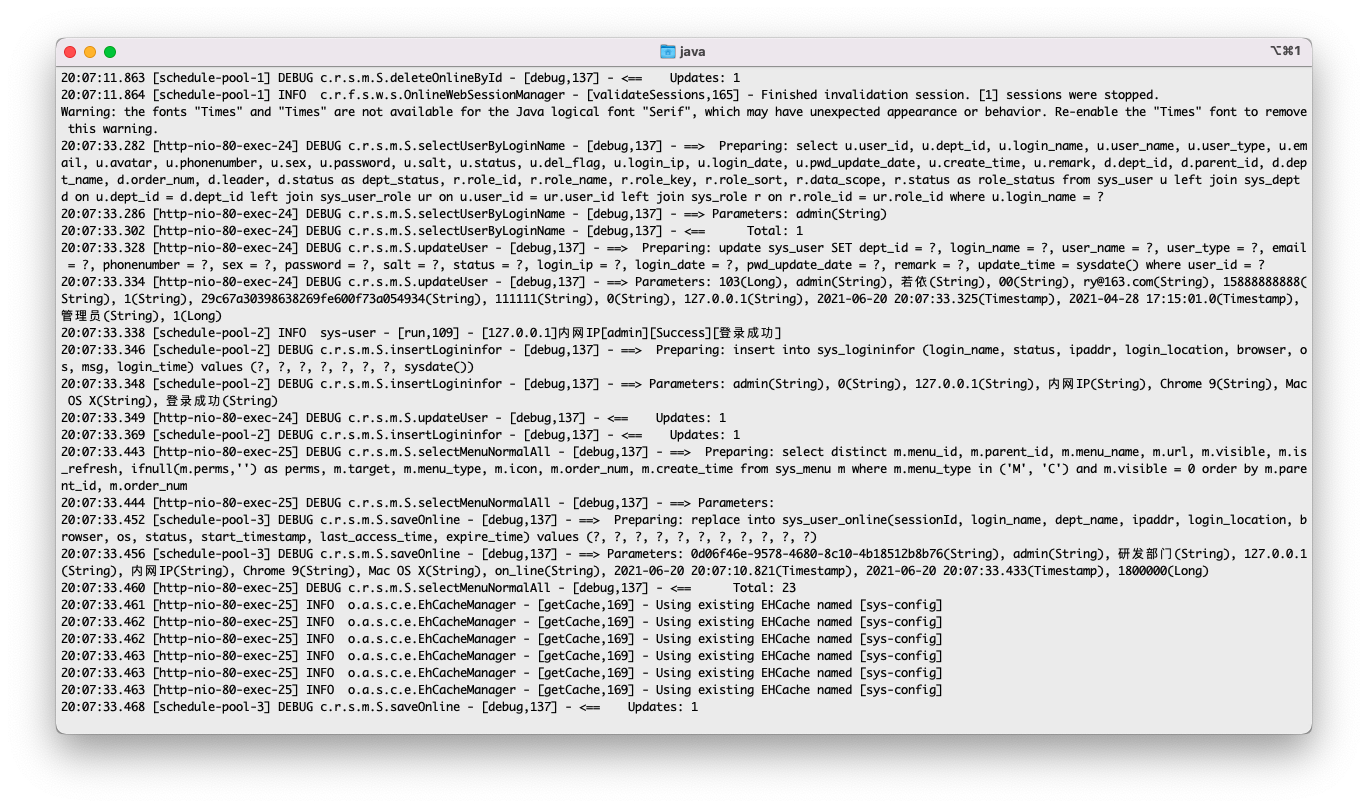使用SpringBoot Mail
maven导入依赖配置
1
2
3
4
5
| <dependency>
<groupId>org.springframework.boot</groupId>
<artifactId>spring-boot-starter-mail</artifactId>
<version>2.1.5.RELEASE</version>
</dependency>
|
设置配置文件相关参数
1
2
3
4
5
6
7
8
9
10
11
12
13
14
15
16
17
18
19
20
|
spring.mail.default-encoding=UTF-8
spring.mail.host=smtp.qq.com
spring.mail.port=465
spring.mail.protocol=smtp
spring.mail.username=business@felord.cn
spring.mail.password=oooooxxxxxxxx
spring.mail.jndi-name=
spring.mail.properties.<key> =
spring.mail.test-connection=false
|
配置使用相关服务
发送文本
1
2
3
4
5
6
7
8
9
10
11
12
13
14
15
16
17
18
19
20
21
22
23
24
25
26
27
28
29
30
31
32
33
34
35
36
37
38
39
| package com.nowcoder.community.util;
import org.slf4j.Logger;
import org.slf4j.LoggerFactory;
import org.springframework.beans.factory.annotation.Autowired;
import org.springframework.beans.factory.annotation.Value;
import org.springframework.mail.javamail.JavaMailSender;
import org.springframework.mail.javamail.MimeMessageHelper;
import org.springframework.stereotype.Component;
import javax.mail.MessagingException;
import javax.mail.internet.MimeMessage;
@Component
public class MailClient {
private static final Logger logger = LoggerFactory.getLogger(MailClient.class);
@Autowired
private JavaMailSender mailSender;
@Value("${spring.mail.username}")
private String from;
public void sendMail(String to, String subject, String content) {
try {
MimeMessage message = mailSender.createMimeMessage();
MimeMessageHelper helper = new MimeMessageHelper(message);
helper.setFrom(from);
helper.setTo(to);
helper.setSubject(subject);
helper.setText(content, true);
mailSender.send(helper.getMimeMessage());
} catch (MessagingException e) {
logger.error("发送邮件失败:" + e.getMessage());
}
}
}
|
不管是简单的文本还是富文本或者带附件的邮件,我们都可以统一的使用MineMessage来进行相关配置。
如果使用HTML富文本,需要在setText方法中将html置为true,如上所示,其中from为发送邮箱,to为收件人,content为对应(富)文本。
发送附件
1
2
3
4
5
6
7
8
9
10
11
12
13
14
15
16
17
18
19
20
21
22
|
public void sendMailWithAttachment(String to, String subject, String text, String filePath) throws MessagingException {
File attachment = new File(filePath);
MimeMessage mimeMessage = javaMailSender.createMimeMessage();
MimeMessageHelper helper=new MimeMessageHelper(mimeMessage,true);
helper.setFrom(from);
helper.setTo(to);
helper.setSubject(subject);
helper.setText(text);
helper.addAttachment(attachment.getName(),attachment);
javaMailSender.send(mimeMessage);
}
|
牛客论坛项目实战
首先Controller模块部分:
1
2
3
4
5
6
7
8
9
10
11
12
13
14
15
16
17
18
19
20
21
22
23
24
| @RequestMapping(path = "/register", method = RequestMethod.GET)
public String getRegisterPage() {
return "/site/register";
}
@RequestMapping(path = "/login", method = RequestMethod.GET)
public String getLoginPage() {
return "/site/login";
}
@RequestMapping(path = "/register", method = RequestMethod.POST)
public String register(Model model, User user) {
Map<String, Object> map = userService.register(user);
if (map == null || map.isEmpty()) {
model.addAttribute("msg", "注册成功,我们已经向您的邮箱发送了一封激活邮件,请尽快激活!");
model.addAttribute("target", "/index");
return "/site/operate-result";
} else {
model.addAttribute("usernameMsg", map.get("usernameMsg"));
model.addAttribute("passwordMsg", map.get("passwordMsg"));
model.addAttribute("emailMsg", map.get("emailMsg"));
return "/site/register";
}
}
|
通过调用UserService来进行注册相关的操作,包括检查传入数据是否合法,并且处理了数据库和发送邮件操作,现将用户相关信息录入数据库,置用户状态为0,等到激活完成再修改为1,并通过Map的方式将各状态信息进行返回并在网页上打印显示。注册过程中,这里使用了UUID的方式从牛客网服务器随机生成头像url,合同email相关信息注入context,通过Thymeleaf直接替换了原先的网页模版。
UserService具体实现逻辑如下:
1
2
3
4
5
6
7
8
9
10
11
12
13
14
15
16
17
18
19
20
21
22
23
24
25
26
27
28
29
30
31
32
33
34
35
36
37
38
39
40
41
42
43
44
45
46
47
48
49
50
51
52
53
54
55
56
57
58
59
60
61
62
63
64
65
66
67
68
69
70
71
72
73
74
75
76
77
78
79
80
81
82
83
84
85
86
87
88
89
90
91
92
93
94
95
96
97
98
99
100
101
102
103
104
105
106
107
108
109
110
111
112
113
114
115
116
117
118
119
120
121
122
123
124
125
126
127
128
129
130
131
132
133
134
135
136
137
138
139
140
141
142
143
144
145
146
147
148
149
150
151
152
153
154
155
156
157
158
159
160
161
162
163
164
165
166
167
168
169
170
171
172
173
174
175
176
177
178
179
180
181
182
183
184
185
186
187
188
189
190
191
192
193
194
195
196
197
198
199
200
201
202
203
204
205
206
207
208
209
210
211
212
213
214
215
216
217
218
219
220
221
222
223
224
225
226
227
228
229
230
231
232
233
234
235
236
237
238
239
240
| package com.nowcoder.community.service;
import com.nowcoder.community.dao.LoginTicketMapper;
import com.nowcoder.community.dao.UserMapper;
import com.nowcoder.community.entity.LoginTicket;
import com.nowcoder.community.entity.User;
import com.nowcoder.community.util.CommunityConstant;
import com.nowcoder.community.util.CommunityUtil;
import com.nowcoder.community.util.MailClient;
import com.nowcoder.community.util.RedisKeyUtil;
import org.apache.commons.lang3.StringUtils;
import org.springframework.beans.factory.annotation.Autowired;
import org.springframework.beans.factory.annotation.Value;
import org.springframework.data.redis.core.RedisTemplate;
import org.springframework.security.core.GrantedAuthority;
import org.springframework.stereotype.Service;
import org.thymeleaf.TemplateEngine;
import org.thymeleaf.context.Context;
import java.util.*;
import java.util.concurrent.TimeUnit;
@Service
public class UserService implements CommunityConstant {
@Autowired
private UserMapper userMapper;
@Autowired
private MailClient mailClient;
@Autowired
private TemplateEngine templateEngine;
@Value("${community.path.domain}")
private String domain;
@Value("${server.servlet.context-path}")
private String contextPath;
@Autowired
private RedisTemplate redisTemplate;
public User findUserById(int id) {
User user = getCache(id);
if (user == null) {
user = initCache(id);
}
return user;
}
public Map<String, Object> register(User user) {
Map<String, Object> map = new HashMap<>();
if (user == null) {
throw new IllegalArgumentException("参数不能为空!");
}
if (StringUtils.isBlank(user.getUsername())) {
map.put("usernameMsg", "账号不能为空!");
return map;
}
if (StringUtils.isBlank(user.getPassword())) {
map.put("passwordMsg", "密码不能为空!");
return map;
}
if (StringUtils.isBlank(user.getEmail())) {
map.put("emailMsg", "邮箱不能为空!");
return map;
}
User u = userMapper.selectByName(user.getUsername());
if (u != null) {
map.put("usernameMsg", "该账号已存在!");
return map;
}
u = userMapper.selectByEmail(user.getEmail());
if (u != null) {
map.put("emailMsg", "该邮箱已被注册!");
return map;
}
user.setSalt(CommunityUtil.generateUUID().substring(0, 5));
user.setPassword(CommunityUtil.md5(user.getPassword() + user.getSalt()));
user.setType(0);
user.setStatus(0);
user.setActivationCode(CommunityUtil.generateUUID());
user.setHeaderUrl(String.format("http://images.nowcoder.com/head/%dt.png", new Random().nextInt(1000)));
user.setCreateTime(new Date());
userMapper.insertUser(user);
Context context = new Context();
context.setVariable("email", user.getEmail());
String url = domain + contextPath + "/activation/" + user.getId() + "/" + user.getActivationCode();
context.setVariable("url", url);
String content = templateEngine.process("/mail/activation", context);
mailClient.sendMail(user.getEmail(), "激活账号", content);
return map;
}
public int activation(int userId, String code) {
User user = userMapper.selectById(userId);
if (user.getStatus() == 1) {
return ACTIVATION_REPEAT;
} else if (user.getActivationCode().equals(code)) {
userMapper.updateStatus(userId, 1);
clearCache(userId);
return ACTIVATION_SUCCESS;
} else {
return ACTIVATION_FAILURE;
}
}
public Map<String, Object> login(String username, String password, long expiredSeconds) {
Map<String, Object> map = new HashMap<>();
if (StringUtils.isBlank(username)) {
map.put("usernameMsg", "账号不能为空!");
return map;
}
if (StringUtils.isBlank(password)) {
map.put("passwordMsg", "密码不能为空!");
return map;
}
User user = userMapper.selectByName(username);
if (user == null) {
map.put("usernameMsg", "该账号不存在!");
return map;
}
if (user.getStatus() == 0) {
map.put("usernameMsg", "该账号未激活!");
return map;
}
password = CommunityUtil.md5(password + user.getSalt());
if (!user.getPassword().equals(password)) {
map.put("passwordMsg", "密码不正确!");
return map;
}
LoginTicket loginTicket = new LoginTicket();
loginTicket.setUserId(user.getId());
loginTicket.setTicket(CommunityUtil.generateUUID());
loginTicket.setStatus(0);
loginTicket.setExpired(new Date(System.currentTimeMillis() + expiredSeconds * 1000));
String redisKey = RedisKeyUtil.getTicketKey(loginTicket.getTicket());
redisTemplate.opsForValue().set(redisKey, loginTicket);
map.put("ticket", loginTicket.getTicket());
return map;
}
public void logout(String ticket) {
String redisKey = RedisKeyUtil.getTicketKey(ticket);
LoginTicket loginTicket = (LoginTicket) redisTemplate.opsForValue().get(redisKey);
loginTicket.setStatus(1);
redisTemplate.opsForValue().set(redisKey, loginTicket);
}
public LoginTicket findLoginTicket(String ticket) {
String redisKey = RedisKeyUtil.getTicketKey(ticket);
return (LoginTicket) redisTemplate.opsForValue().get(redisKey);
}
public int updateHeader(int userId, String headerUrl) {
int rows = userMapper.updateHeader(userId, headerUrl);
clearCache(userId);
return rows;
}
public User findUserByName(String username) {
return userMapper.selectByName(username);
}
private User getCache(int userId) {
String redisKey = RedisKeyUtil.getUserKey(userId);
return (User) redisTemplate.opsForValue().get(redisKey);
}
private User initCache(int userId) {
User user = userMapper.selectById(userId);
String redisKey = RedisKeyUtil.getUserKey(userId);
redisTemplate.opsForValue().set(redisKey, user, 3600, TimeUnit.SECONDS);
return user;
}
private void clearCache(int userId) {
String redisKey = RedisKeyUtil.getUserKey(userId);
redisTemplate.delete(redisKey);
}
public Collection<? extends GrantedAuthority> getAuthorities(int userId) {
User user = this.findUserById(userId);
List<GrantedAuthority> list = new ArrayList<>();
list.add(new GrantedAuthority() {
@Override
public String getAuthority() {
switch (user.getType()) {
case 1:
return AUTHORITY_ADMIN;
case 2:
return AUTHORITY_MODERATOR;
default:
return AUTHORITY_USER;
}
}
});
return list;
}
}
|
邮件模版如下:
1
2
3
4
5
6
7
8
9
10
11
12
13
14
15
16
17
18
19
20
| <!doctype html>
<html lang="en" xmlns:th="http://www.thymeleaf.org">
<head>
<meta charset="utf-8">
<link rel="icon" href="https://static.nowcoder.com/images/logo_87_87.png"/>
<title>牛客网-激活账号</title>
</head>
<body>
<div>
<p>
<b th:text="${email}">xxx@xxx.com</b>, 您好!
</p>
<p>
您正在注册牛客网, 这是一封激活邮件, 请点击
<a th:href="${url}">此链接</a>,
激活您的牛客账号!
</p>
</div>
</body>
</html>
|
在发送邮件时,我们直接调用了已经实现的工具类MailClient,实现如下:
1
2
3
4
5
6
7
8
9
10
11
12
13
14
15
16
17
18
19
20
21
22
23
24
25
26
27
28
29
30
31
32
33
34
35
36
37
38
39
40
| package com.nowcoder.community.util;
import org.slf4j.Logger;
import org.slf4j.LoggerFactory;
import org.springframework.beans.factory.annotation.Autowired;
import org.springframework.beans.factory.annotation.Value;
import org.springframework.mail.javamail.JavaMailSender;
import org.springframework.mail.javamail.MimeMessageHelper;
import org.springframework.stereotype.Component;
import javax.mail.MessagingException;
import javax.mail.internet.MimeMessage;
@Component
public class MailClient {
private static final Logger logger = LoggerFactory.getLogger(MailClient.class);
@Autowired
private JavaMailSender mailSender;
@Value("${spring.mail.username}")
private String from;
public void sendMail(String to, String subject, String content) {
try {
MimeMessage message = mailSender.createMimeMessage();
MimeMessageHelper helper = new MimeMessageHelper(message);
helper.setFrom(from);
helper.setTo(to);
helper.setSubject(subject);
helper.setText(content, true);
mailSender.send(helper.getMimeMessage());
} catch (MessagingException e) {
logger.error("发送邮件失败:" + e.getMessage());
}
}
}
|
当用户访问邮件内含有的url时,通过UserService中的activation方法,对用户的情况进行一个核实,如果配对成功并且状态仍然为0,则将其置1完成激活。








